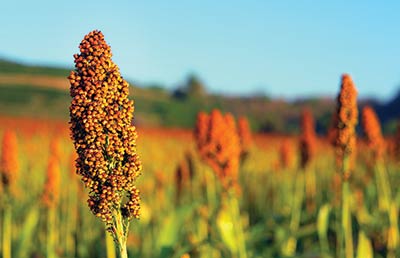One Year Lag in ARC Olympic Average Revenue

In our post yesterday we mentioned that the final Olympic Revenue calculation was dependent on the final 2018 crop yields. However, one of the changes in the new farm bill that we missed is that Olympic Revenues calculations are now based one year in arrears. For example, the 2019 Olympic Revenue will be based on yields for 2013-2017 which makes it easier to determine your revenue base and guarantee (86% of Olympic Revenue).
That is the easy part. The hard part is that this may reduce your guarantee since the 2018 yields for most parts of the corn belt were much higher than 2013 yields even on a trend-adjusted basis. The new Farm Bill calls for trend-adjusted yields, therefore, it is likely that all yields will be trend-adjusted so that a 2013 yield will be adjusted upwards to be comparable to 2014-2017 yields.
We did an analysis of all of the counties reported by FSA for corn. We assumed that 2013 yields would be “trended” up 10 bushels to be comparable to 2018 yields (some would be more, some less). We then assumed that 2018 yields would be at least equal to the highest yield over the last five years (on a non-trend adjusted basis). We then calculated what the reduction in the guarantee would be for one county from each of the five largest corn producing states. The table below summarizes these findings:
| State | County | 2014 | 2018 | Bu. Diff. | Guarantee |
| Illinois | McLean | 220 | 212 | 8 | $29.60 |
| Indiana | Grant | 179 | 177 | 2 | $7.40 |
| Iowa | Buchanan | 206 | 188 | 18 | $66.60 |
| Minnesota | Dodge | 207 | 196 | 11 | $40.70 |
| Nebraska | York | 209 | 205 | 4 | $14.80 |
Final trend-adjusted numbers should be forthcoming from FSA soon since all of that data should have been processed by now. Once that data is available, we can rerun these calculations and see how much difference the new Farm Bill calculations are compared to the prior Farm Bill. We are guessing that there will be a difference and it can be major in some cases.
The intent was to make it easier to calculate Olympic Revenue. The unintended consequence is that the revenue for 2019 may be lower than expected. However, it is likely that most farmers will sign up for PLC anyway and this may not matter.
Paul Neiffer is a certified public accountant and business advisor specializing in income taxation, accounting services, and succession planning for farmers and agribusiness processors. Paul is a principal with CliftonLarsonAllen in Walla Walla, Washington, as well as a regular speaker at national conferences and contributor at agweb.com. Raised on a farm in central Washington, he has been immersed in the ag industry his entire life, including the last 30 years professionally. Paul and his wife purchase an 180 acre ranch in 2016 and enjoy keeping it full of animals.

Comments are closed.